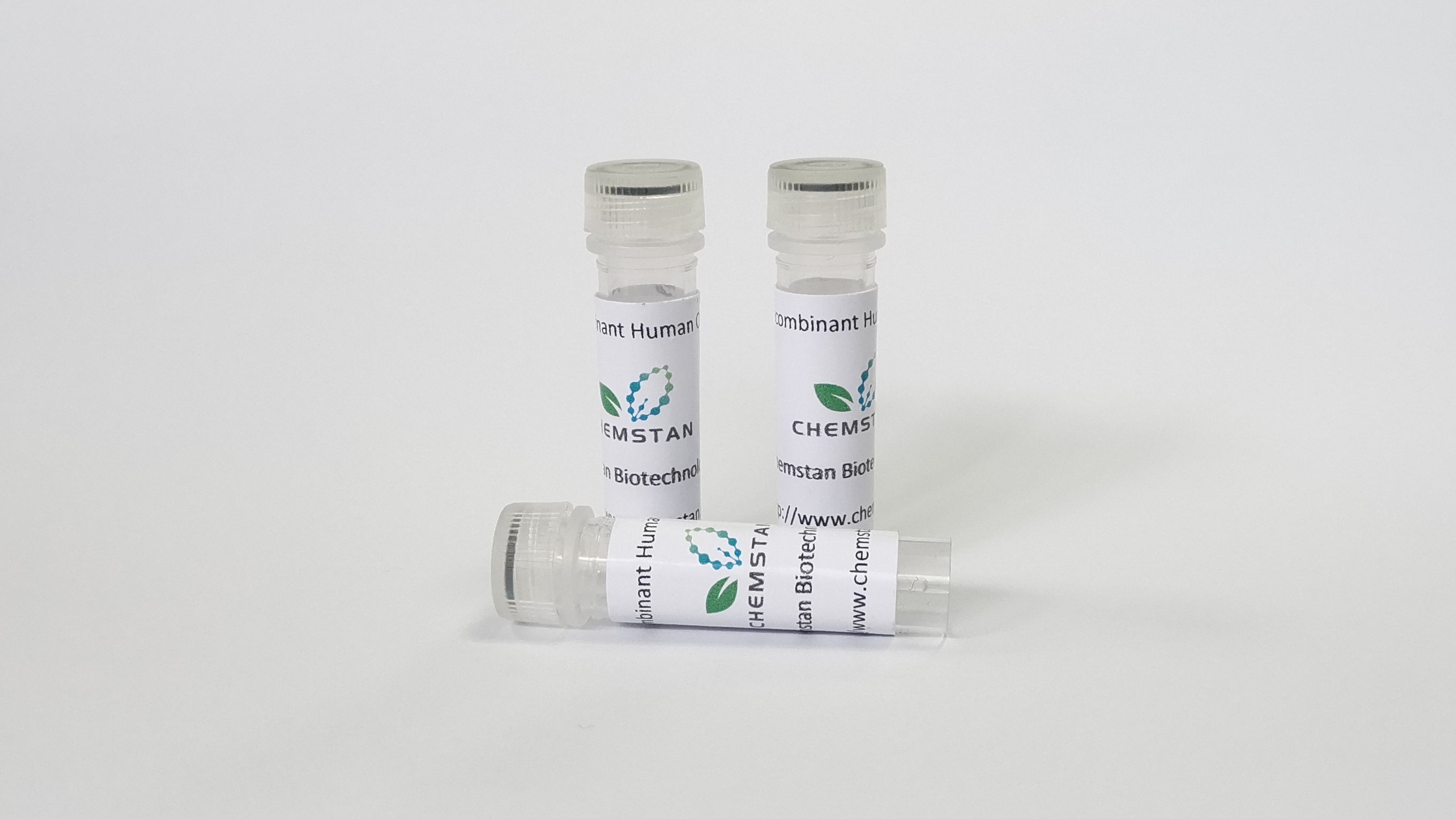
瀏覽量: 44
- 產(chǎn)品名稱: Recombinant Human CTSS protein
- 產(chǎn)品貨號(hào): CSP01143
- 貨期: 現(xiàn)貨
- 價(jià)格與訂購(gòu): 1800
- 數(shù)量:
庫(kù)存: 100
- 規(guī)格: 50μg 100μg 1mg
- 產(chǎn)品信息
- 如何訂購(gòu)
概述(Summary)
英文全稱
Recombinant Human CTSS protein
純度(Purity)
>90% as determined by SDS-PAGE
內(nèi)毒素(Endotoxin level)
Please contact with the lab for this information.
蛋白構(gòu)建(Construction)
A DNA sequence encoding the human CTSS (Leu115-Ile331) was fused with His tag
Accession #
P25774
表達(dá)宿主(Host)
E.coli
種屬(Species)
Homo sapiens (Human)
預(yù)測(cè)分子量(Predicted Molecular Mass)
25.5 kDa
制劑(Formulation)
Supplied as solution form in PBS pH 7.5 or lyophilized from PBS pH 7.5.
運(yùn)輸方式(Shipping)
In general, proteins are provided as lyophilized powder/frozen liquid. They are shipped out with dry ice/blue ice unless customers require otherwise.
穩(wěn)定性&儲(chǔ)存(Stability &Storage)
Use a manual defrost freezer and avoid repeated freeze thaw cycles.
Store at 2 to 8 °C for one week .
Store at -20 to -80 °C for twelve months from the date of receipt.
Store at 2 to 8 °C for one week .
Store at -20 to -80 °C for twelve months from the date of receipt.
復(fù)溶(Reconstitution)
Reconstitute in sterile water for a stock solution.A copy of datasheet will be provided with the products, please refer to it for details.
背景(Background)
背景介紹
Cathepsin S (CTSS), one of the lysosomal proteinases, has many important physiological functions in the nervous system, especially in process of extracellular matrix degradation and endocellular antigen presentation. CTSS is synthesized as inactive precursor of 331 amino acids consisting of a 15-aa signal peptide, a propeptide of 99 aa, and a mature polypeptide of 217 aa. It is activated in the lysosomes by a proteolytic cleavage of the propeptide. Cathepsin S is expressed in the lysosome of antigen presenting cells, primarily dendritic cells, B-cells and macrophages. Compared with other lysosomal cysteine proteases, cathepsin S has displayed some unique characteristics. Cathepsin S is most well known for its critical function in the proteolytic digestion of the invariant chain chaperone molecules, thus controlling antigen presentation to CD4+ T-cells by major histocompatibility complex (MHC) class II molecules or to NK1.1+ T-cells via CD1 molecules. Cathepsin S also appears to participate in direct processing of exogenous antigens for presentation by MHC class II to CD4+ T-cells, or in cross-presentation by MHC class I molecules to CD8+ T-cells. In addition, although direct evidence is still lacking, in its secreted form cathepsin S is implicated in degradation of the extracellular matrix, which may contribute to the pathology of a number of diseases, including arthritis, atherosclerosis, neurological diseases and chronic obstructive pulmonary disease.
分子別名(Alternative Names)
Cathepsin S,CTSS,MGC3886.
Note
For research use only .

 地 址:
地 址: 產(chǎn)品銷售:
產(chǎn)品銷售: E - mail :
E - mail : 郵 編:
郵 編:
 Amily
Amily


